The Enforcement Directorate (ED) recovered ₹45 lakh in cash and seized digital evidence after 20-hour raids across multiple locations linked to West Bengal Fire and Emergency Services Minister Sujit Bose. The investigation, tied to an alleged municipal jobs-for-cash scheme, intensifies political tensions in the state.
The Enforcement Directorate conducted coordinated raids at 13 locations associated with West Bengal Minister Sujit Bose in connection with an alleged jobs-for-cash scandal. Officials seized ₹45 lakh in cash, crucial documents, and digital records for forensic analysis. While Bose termed the raids “politically motivated,” the ED maintains it is tracking money trails dating back to his tenure at the South Dum Dum municipality. Source: The Times of India.
Kolkata, October 13 — Crackdown Deepens as ED Widens Its Net in West Bengal
In yet another escalation of West Bengal’s mounting political corruption controversies, the Enforcement Directorate (ED) carried out extensive searches across 13 locations linked to state minister Sujit Bose on Friday, recovering ₹45 lakh in unaccounted cash, mobile devices, and critical documents.
The raids—part of the ongoing jobs-for-cash probe—were conducted simultaneously across Kolkata, Dum Dum, and Salt Lake, targeting premises associated with Bose, his family, and several intermediaries alleged to have facilitated irregular recruitments in municipal bodies.
According to ED officials, the 20-hour operation began before dawn and continued until late night, with teams backed by central security personnel. The agency described the action as a “strategic follow-up” to earlier intelligence inputs and digital trails recovered from prior raids on state departments.
🕵️♂️ The Operation: Inside a 20-Hour Sweep
Sources within the enforcement agency revealed that the raids were carried out under the Prevention of Money Laundering Act (PMLA), 2002.
Officers divided into multiple teams searched:
- Bose’s residential premises in Lake Town,
- Two offices in South Dum Dum,
- A restaurant reportedly linked to his family business,
- And other properties of individuals under investigation.
The operation yielded ₹45 lakh in cash, which investigators believe could be proceeds from the alleged recruitment racket. Several computers, mobile phones, and hard drives were seized for forensic imaging, alongside property documents, ledgers, and transaction records spanning 2016–2021.
Officials said the forensic analysis will determine whether the seized data establishes money flow connections between intermediaries, contractors, and municipal staff appointments.
“We are following the money trail. The cash and documents recovered will undergo forensic verification to ascertain their link with the recruitment irregularities,”
— said a senior ED officer, requesting anonymity.
💼 The Allegations: Jobs-for-Cash in Municipal Governance
The probe is rooted in allegations that appointments in the South Dum Dum Municipality were sold for bribes during Bose’s tenure as chairperson before he became a cabinet minister.
Whistleblower testimonies and digital correspondences reportedly pointed to irregularities in recruitment of clerical and technical staff, where candidates were asked to pay large sums—ranging from ₹2 lakh to ₹6 lakh—in exchange for permanent jobs.
The ED’s case builds on a CAG audit trail and a preliminary complaint lodged by a civic employee, which triggered the PMLA investigation after the Central Bureau of Investigation (CBI) shared inputs on unexplained assets.
While the CBI looks into the criminal conspiracy and administrative fraud, the ED’s focus remains the money laundering aspect — tracing how the alleged bribes were collected, layered, and invested.
🗣️ Sujit Bose Denies Allegations, Calls Probe “Politically Motivated”
Minister Sujit Bose, a senior Trinamool Congress (TMC) leader and MLA from Bidhan Nagar, has categorically denied the allegations, terming the ED action as “part of a political vendetta orchestrated by the Centre.”
“I have nothing to hide. These raids are politically motivated and aimed at tarnishing my image ahead of the civic elections,”
— Bose told reporters outside his residence.
He added that the cash recovered was “legitimate family income” and claimed full cooperation with the agency.
The TMC, meanwhile, accused the central government of “weaponising” investigative agencies to destabilize the state government. Party spokesperson Kunal Ghosh said:
“The ED and CBI have become instruments of political harassment. Ministers and leaders are being selectively targeted.”
⚖️ ED’s Stand: Following the Money Trail
Contrary to the minister’s claims, the Enforcement Directorate maintains that the raids are evidence-driven and part of a broader probe into illicit municipal recruitment networks.
Agency sources claim that multiple money transfers were detected from firms linked to civic contractors into accounts controlled by Bose’s associates between 2018 and 2021. These transfers allegedly coincided with municipal job postings and contract allotments.
The ED is now examining:
- Bank account statements of linked entities,
- WhatsApp communications and email trails,
- Property acquisitions during the period,
- And digital ledgers found on seized devices.
Officials say more raids may follow in the coming weeks if digital forensics confirm deeper financial layering.
📜 Legal Context: The PMLA Lens
The Enforcement Directorate’s power to investigate such cases stems from the Prevention of Money Laundering Act (PMLA), 2002, which allows seizure of assets derived from or connected to criminal proceeds.
Under Section 5 of the Act, the agency can provisionally attach properties suspected to be purchased with illicit funds pending adjudication.
If the probe establishes a money-laundering chain, the accused could face imprisonment up to seven years and forfeiture of assets.
ED officials said the case is still in its evidence-gathering stage, and no arrests have been made yet.
🧾 Political Fallout: A State on Edge
The raids have reignited political tensions in West Bengal, where multiple corruption cases — including the School Service Commission (SSC) recruitment scam and the coal pilferage case — have put the ruling Trinamool Congress on the defensive.
Opposition parties, particularly the Bharatiya Janata Party (BJP), have seized upon the latest development as proof of “systemic corruption” in state governance.
“Every department, from education to fire services, is riddled with corruption. The people of Bengal deserve transparency,”
— said BJP state president Sukanta Majumdar at a press briefing.
The Left Front, too, demanded an independent inquiry under judicial supervision, arguing that both the Centre and state have turned accountability into a political game.
🏗️ A Pattern of Investigations
This is not the first time West Bengal’s civic infrastructure has come under scrutiny.
Over the past two years, the ED has conducted multiple searches in connection with:
- SSC Recruitment Scam involving former Education Minister Partha Chatterjee,
- Coal and Cattle Smuggling Cases,
- And irregularities in municipal construction tenders.
Each probe has triggered fierce political exchanges between the Centre and the state. Analysts suggest that the continued spate of investigations may shape the political narrative ahead of the 2026 Assembly Elections.
📉 Administrative Ripples: Bureaucracy Under Watch
Following the latest raids, the state’s Urban Development and Municipal Affairs Department has reportedly ordered an internal audit of all recruitment files from 2015–2022 across select municipalities.
Officials said the audit will check compliance with the West Bengal Municipal Recruitment Rules and verify candidate eligibility records. The department, however, has not issued any public statement acknowledging the ED’s findings.
A senior bureaucrat told Sarhind Times on condition of anonymity:
“This is a sensitive time. Any lapses found in administrative processes will have to be fixed, but politically charged investigations create hesitation among officers.”
📊 Public Sentiment: A Growing Trust Deficit
Public reaction in Kolkata and its suburbs reflects both anger and fatigue.
For many citizens, repeated corruption headlines have deepened cynicism about governance.
“We read about cash seizures almost every month. It’s depressing. No one seems accountable anymore,”
— said Arindam Roy, a small-business owner in South Dum Dum.
Local youth groups have demanded stronger transparency measures, including online publication of recruitment results and external audits of civic appointments.
📉 Economic Implications: Investor Confidence at Stake
Frequent corruption probes can weigh on investor sentiment, especially in sectors tied to state permissions such as real estate, logistics, and infrastructure.
Economists note that sustained political friction may delay project clearances, affecting Bengal’s already moderate investment inflows.
The West Bengal Industrial Development Corporation (WBIDC) is reportedly working on restoring investor outreach through credibility measures.
“Economic perception is shaped by trust, not just policy. Governance stability is key,”
— said Dr. Anirban Banerjee, an economist at the Indian Statistical Institute.
📜 ED’s Broader Mandate in Bengal
The Enforcement Directorate currently has over 120 active cases in West Bengal, many linked to illegal recruitment, coal smuggling, and financial irregularities in government contracts.
The agency’s Kolkata zonal office has expanded its staff strength by nearly 40% since 2022, signaling increased focus on the region.
Parallelly, the CBI continues to pursue criminal prosecution in several of these matters.
While the Trinamool Congress portrays this as political overreach, central agencies argue they are merely responding to credible evidence.
⚖️ The Road Ahead: Political and Legal Consequences
The next phase of the probe could see formal summons issued to Bose and associated individuals for questioning. If money trails corroborate irregular payments, the ED could proceed with property attachment under PMLA provisions.
Politically, the TMC is expected to close ranks around Bose, framing the narrative as part of a “Centre vs State” battle.
Opposition parties, however, are likely to intensify pressure through public campaigns calling for ministerial resignation.
Observers say the RBI’s upcoming inflation data and monsoon relief funding could share the national spotlight this week, but Bengal’s political tremors will dominate regional discourse.
📜 Timeline of the Case (So Far)
| Date | Event |
| 2010–2021 | Sujit Bose serves as Chairperson, South Dum Dum Municipality |
| 2022 | Allegations of irregular recruitment surface |
| Jan 2024 | CBI begins preliminary inquiry |
| Aug 2024 | CBI shares findings with ED |
| Oct 12, 2025 | ED conducts raids across 13 locations, seizes ₹45 lakh |
| Oct 13, 2025 | ED officially confirms money-laundering probe |
🔚 Conclusion: Bengal’s Political Equilibrium Tested Again
The ED’s action against Sujit Bose reinforces a pattern that has defined West Bengal’s political climate over the past few years — recurring corruption allegations, public outrage, and partisan blame games.
Whether this case leads to a legal breakthrough or fizzles out amid political noise remains to be seen. But for now, it underscores a truth that Bengal’s electorate knows all too well: every raid, every cash seizure, and every denial chips away at public trust in governance.
#EnforcementDirectorate #WestBengal #Corruption #PMLA #Investigation #JobsScam #Politics #SujitBose #SarhindTimes
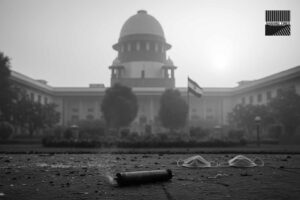










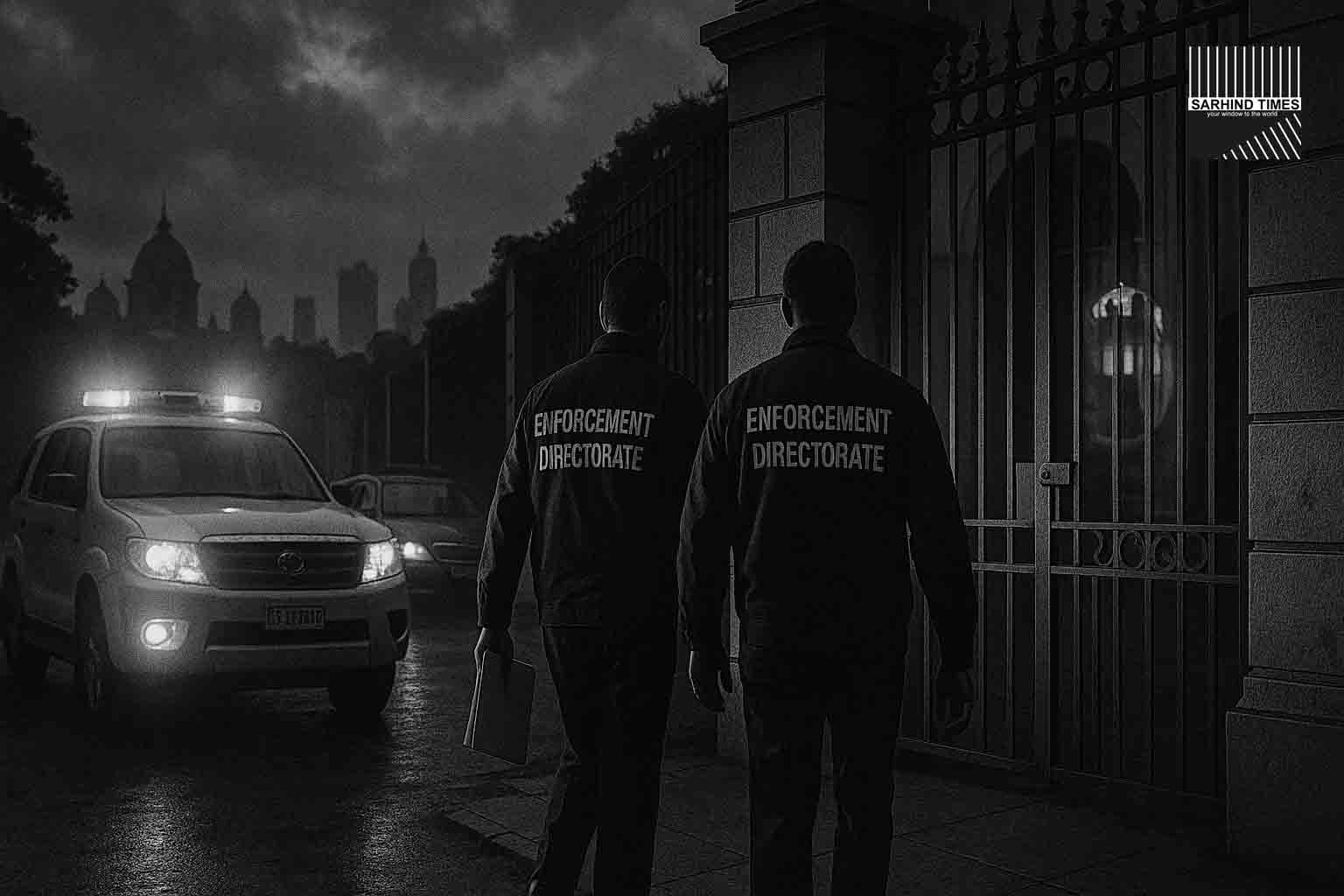
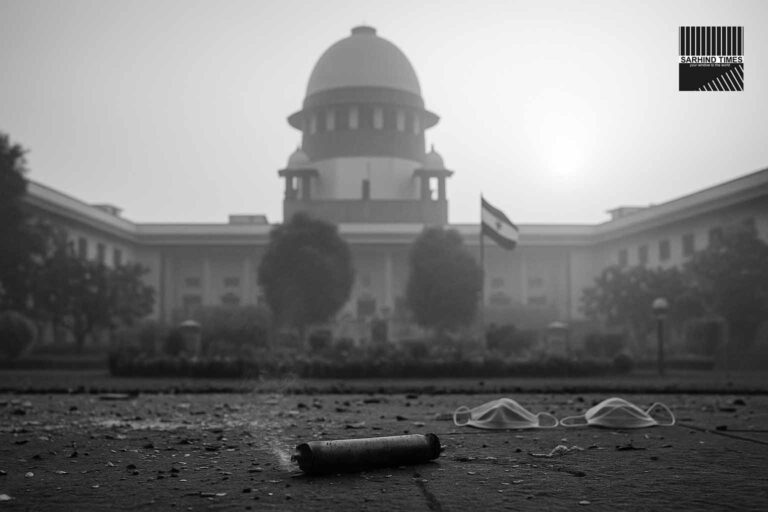

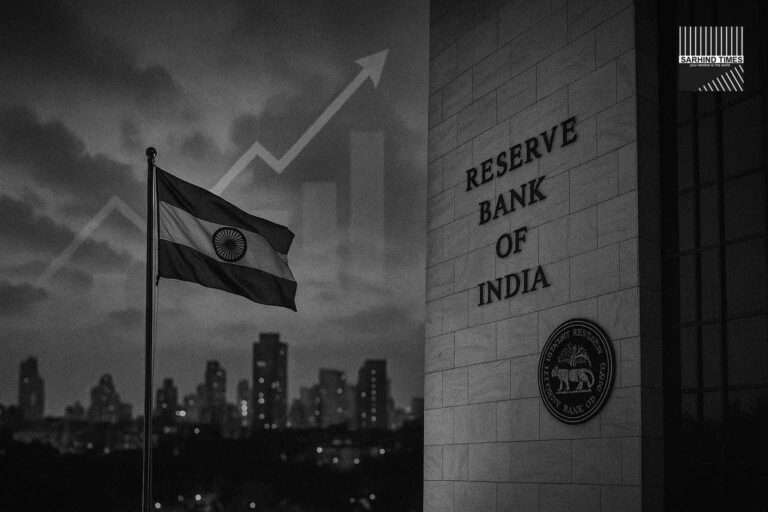

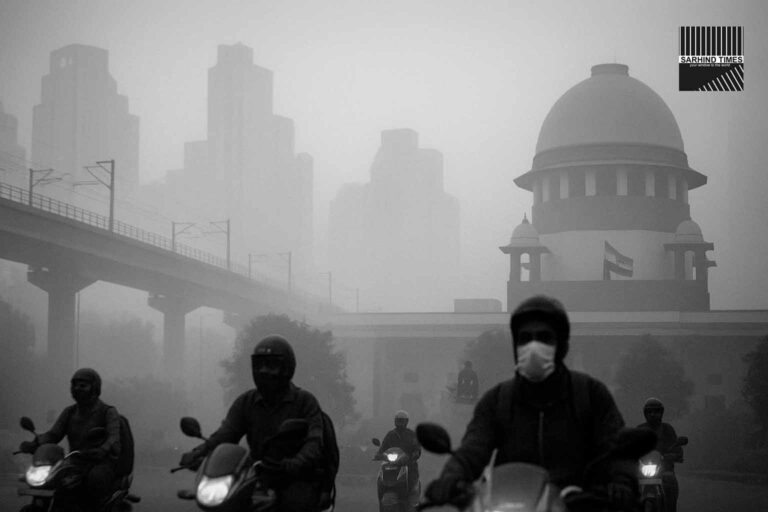

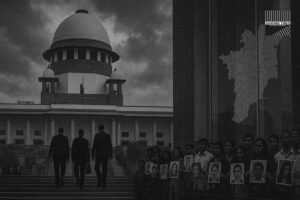

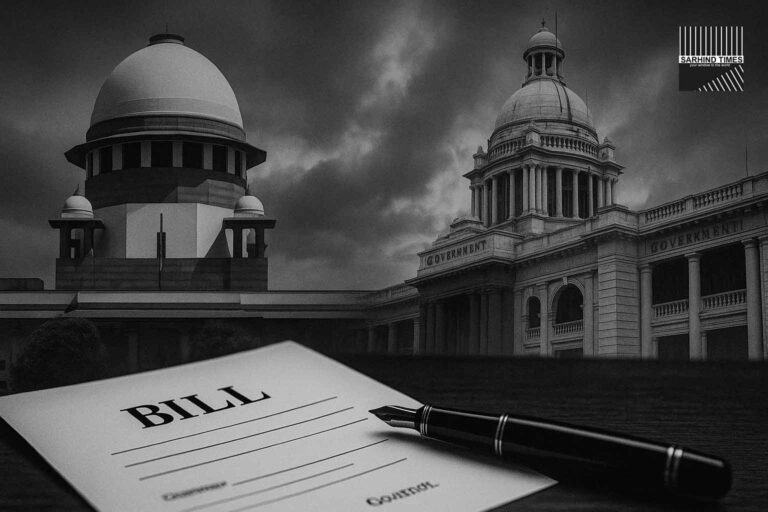

+ There are no comments
Add yours